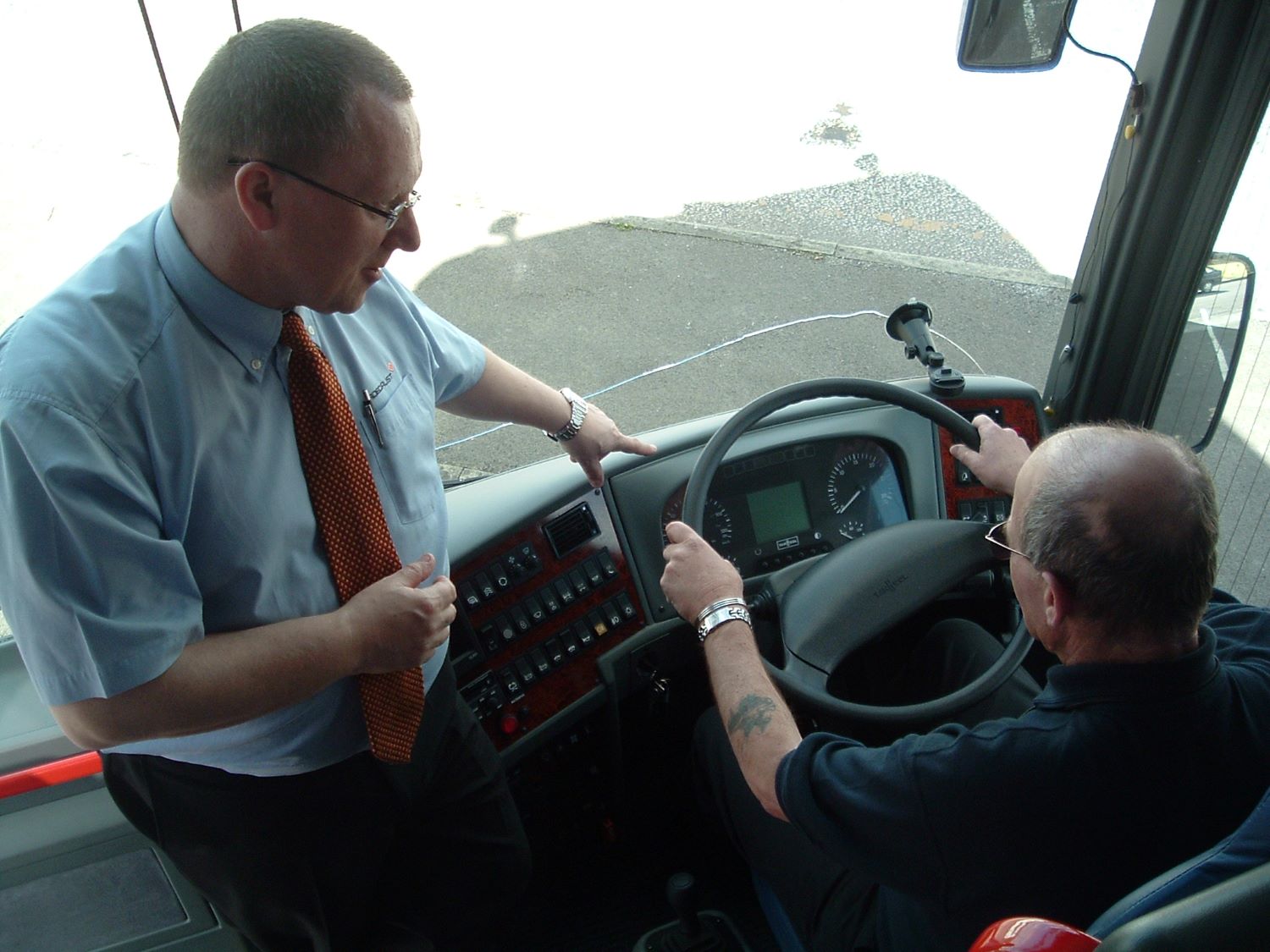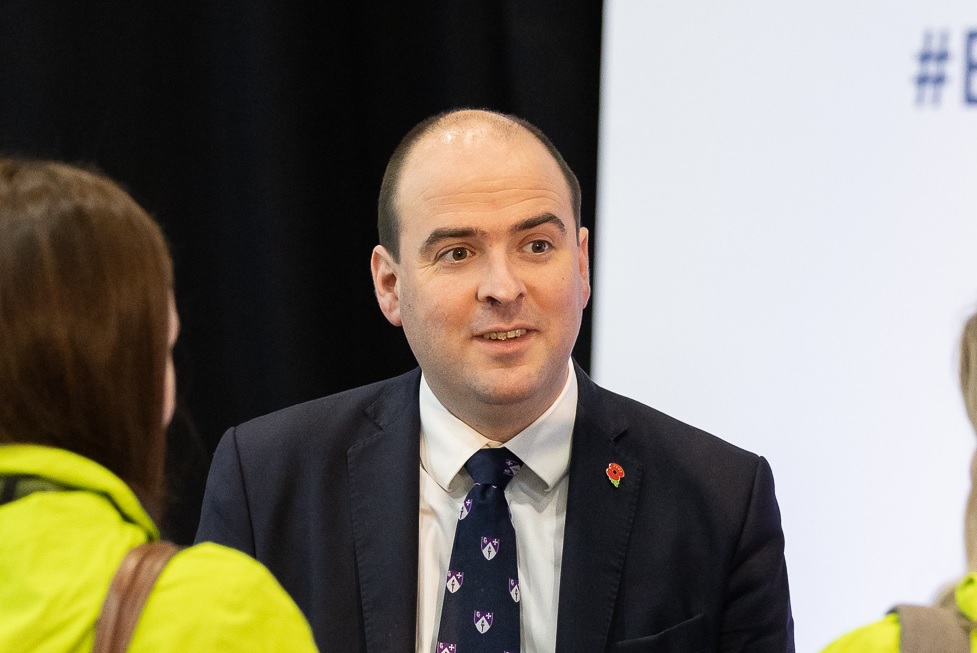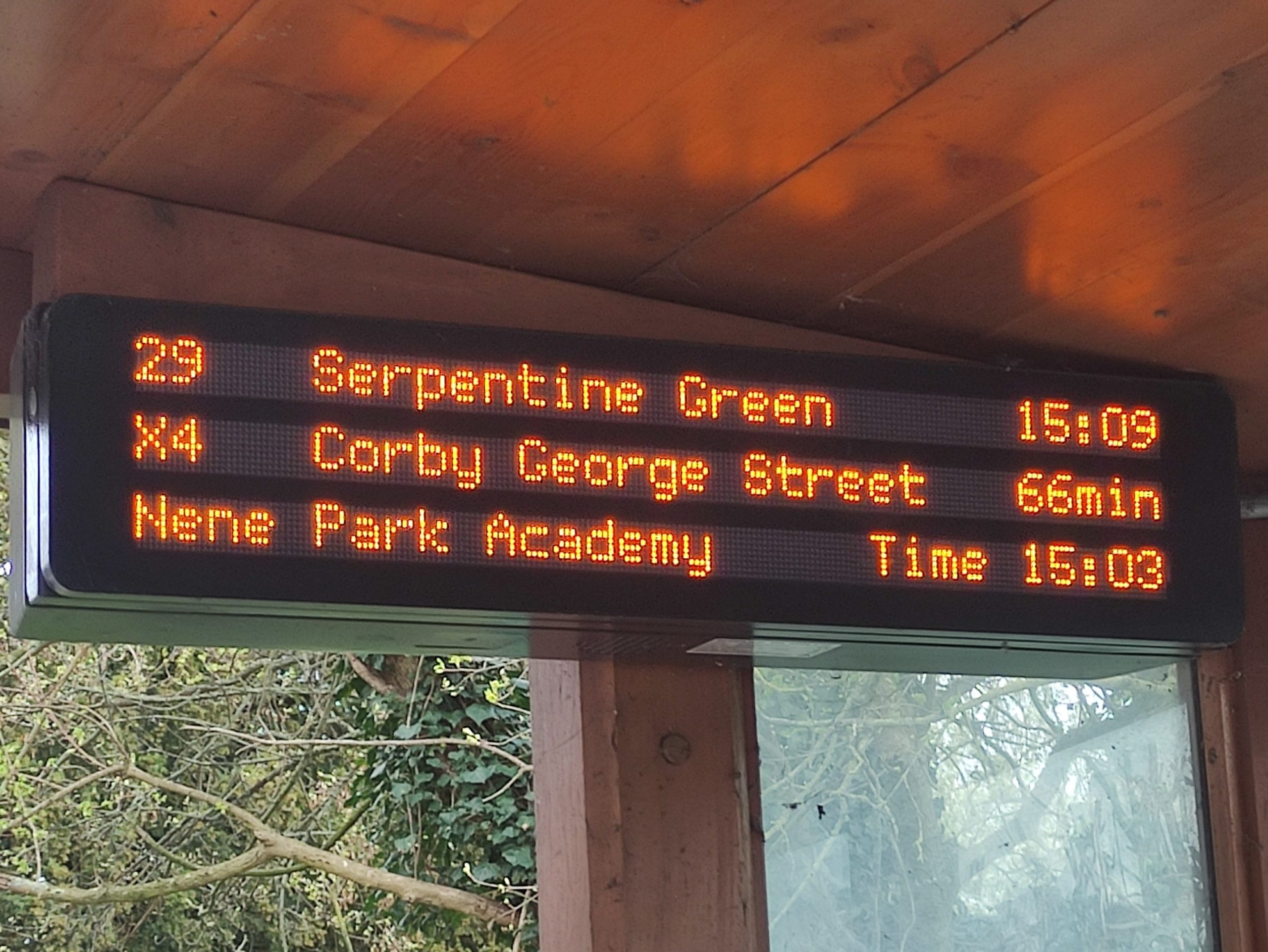Proposed reforms to Driver Certificate of Professional Competence (DCPC) renewals have been largely welcomed throughout the coach and bus industry.
The Department for Transport (DfT) on 2 March opened a consultation into proposed changes to DCPC which will close on 27 April.
If carried through, the changes would lead to two parallel qualifications — a national DCPC (N-DCPC) and an international DCPC (I-DCPC). The latter would reflect the existing DCPC as those driving in the EU would need to comply with the existing requirements.
Drivers wishing to renew or regain their certification to operate domestically would have the option to retain their N-DCPC via a test involving 50 multiple-choice questions.
The other way of gaining the certification would be via the traditional 35 hours of training every five years. However, the changes would bring greater flexibility. Presently, the minimum length of training is seven hours — or three and a half hours if split over two consecutive days — but the new system would not stipulate a minimum.
Further, drivers who have let their DCPC lapse and are returning to the profession within a specified timeframe would need to complete only a seven-hour “returning to driving” module, followed by 28 hours once back driving.
The benefits of reform are much clearer for bus than coach. For a coach operator travelling into the EU, the proposals are unlikely to have a direct effect, given most or all of their drivers will need the I-DCPC with the existing mechanisms.
The DCPC began in 2007 as specified by an EU directive but operators have clamoured for change since Brexit in view of driver shortages and high costs and time expenditure, which is sometimes borne by the driver. The 35 hours training typically costs £250-500, notes the DfT, whereas the new periodic test, lasting one to one and a half hours, would be expected to set drivers back by only £40-70 per attempt.
The Confederation of Passenger Transport (CPT) is encouraged to see the proposals, which follow a review set out in autumn 2021.
CPT Operations Director Keith McNally, says: “The proposals are largely welcome and reflect the input that CPT had to the DfT review.
“However, we are disappointed at the speed of progress on these proposed reforms. We are working with members to formally respond to the consultation and aim to ensure that the detail works for the coach and bus sector.
“In particular, it is important that the ‘return to driving’ module is suitable for drivers in our sector, in terms of both scope and content.”
The UK Coach Operators Association was still assembling feedback from its members as routeone went to press. However, its chair, Anthony Marett, spoke on behalf of his company, Maretts Chariots, while also saying he had heard from others in the industry.
“I get the impression across the industry that coach operators don’t particularly like the DCPC and coach drivers certainly don’t,” he says. “But there are a small minority who do value it and I put myself into that category because I think that training professional drivers on a constant basis can only be a good thing.”
He says he does not agree with all the changes proposed but thinks it’s a “move in the right direction”. In particular, he points out the need to inspire drivers more during the training. “What you don’t want is a driver sitting there seven or eight hours and being bored rigid and thinking they know it all,” he says. “If you can engage them in something and give them the benefits of continual learning, you’ll end up with good results.”
Craig Temple, Managing Director of both Connexions Buses and Harrogate Coach Travel in Yorkshire, agrees the biggest challenge is getting the drivers on side. “I think the biggest hurdle we’ve got with DCPC is to get into the mindset of the drivers who don’t think they should be having to sit and do anything,” he says. He believes there is a need for some sort of ongoing training as the job changes over the years. “It’s just a question of getting it right, so the drivers don’t feel that it’s a chore,” he says.
Some are more cynical regarding the need for extensive ongoing training, though. Barry Austin of Austin Travel in Scottish Borders says much of the job is “common sense”.
“Most of the people I know think the DCPC is a complete drain on resources and a waste of time,” he says. “I’m 65 this year and I’m thinking, ‘Am I actually going to renew my license next year?’” and the answer to that is probably not. I get sick and tired of people telling me what I should and shouldn’t do.” He would like to see the introduction of two days’ training per year on tachographs, though.
Richard Bamber, Managing Partner of Anthony’s Travel of Runcorn, would like to see more e-learning that could be consumed in bite-sized chunks in drivers’ own time, such as when parked up between jobs. “I think most people agree it needs to reform and that possibly it’s too rigid with the blocks of seven hours,” says Richard, who wants to see the emphasis on quality rather than quantity.
Multiple-choice test
One of the key elements of the reform is the idea of a test which could be 50 multiple-choice and situational judgement questions.
Anthony likes the option of a test as this will encourage some to work harder at retaining information, but he also thinks the training may suit those who don’t do well in an exam environment. That is a thought echoed by Richard, who thinks roughly half of drivers would prefer the training option.
However, Ed Wills, Managing Director of Brighton and Hove Metrobus, says that while his company supported some of the changes, it was strongly opposed to the multiple-choice exam.
“This will weaken standards in the transport sector and undermine professionalism,” he says. “If ongoing training and development is replaced with nothing more than a five-yearly multiple-choice exam, this will not enhance training and retention of drivers but weaken safety standards and competency. The periodic training, if anything, should be extended and made more comprehensive to further instil better safety standards within the industry.”
Craig is more considered in his response, saying it could work as long as the questions were well chosen.

The two-DCPC system
The need for both an N-DCPC and I-DCPC to get around international laws could have downsides and upsides. The DfT admitted that it could lead to more time and money expenditure if a driver took the national certification but later decided there was a need to add on international accreditation.
That said, Craig, whose Yorkshire businesses are limited to domestic travel, can see an advantage. “From a purely selfish point of view as an employer, if we only offer our drivers a domestic DCPC, they’re not going to run away to drive coaches for someone else on a whim,” he says.
DfT admits the potential for confusion, given there would be three routes to two qualifications.
Changes are also proposed to allow for time-limited extensions in exemptional circumstances. Such an example would have been during the COVID-19 pandemic when in-person renewals were not possible. Brighton and Hove Metrobus, for one, has endorsed this adaption.
Impact on educators
The changes could impact significantly on companies which offer DCPC training. EOS Training and Ridgeway Training Managing Director Chris Shelford says around 40% of his businesses’ turnover comes from providing DCPC courses and materials.
He says: “It’s painful because the government is trying to change things at the moment because it’s seeing that it is out of the EU and is probably getting pressure from other organisations as well.”
He also believes using multiple-choice tests as an option could compromise safety, and believes DVSA will likely keep this training in-house to reduce costs.
Chris thinks DCPC needs to be looked at in the sense of continuing professional development which is necessary as part of the role. “I see a benefit of Driver CPC for both coach and bus purely on the basis of being able to cherry-pick the right course at the right time. You’ve got a driver that’s constantly infringing on drivers’ hours? Well, okay, he needs seven hours of Driver CPC, so why don’t we find him a drivers’ hours and tachograph course?”
To give feedback on the consultation, go to the DfT website



























